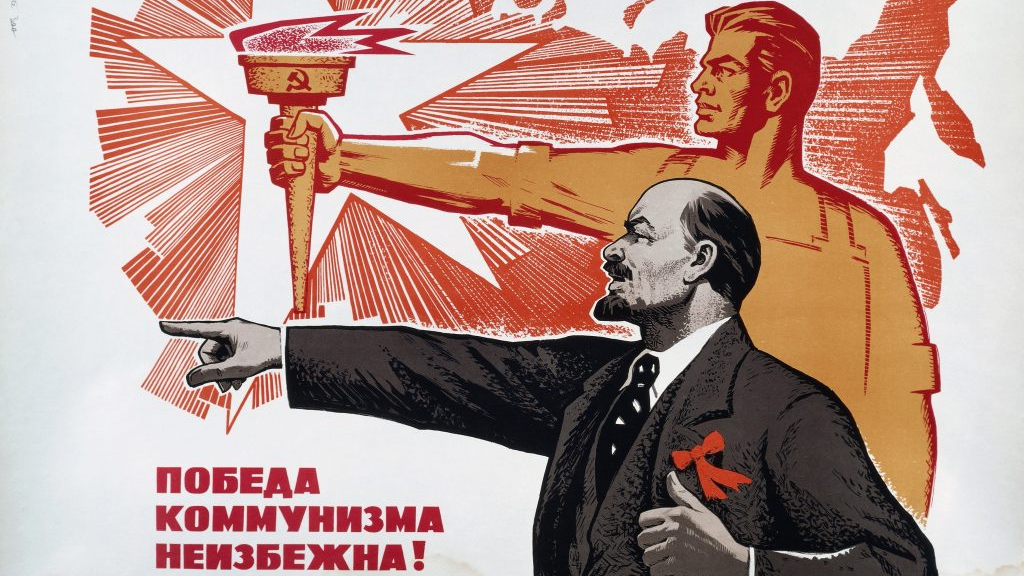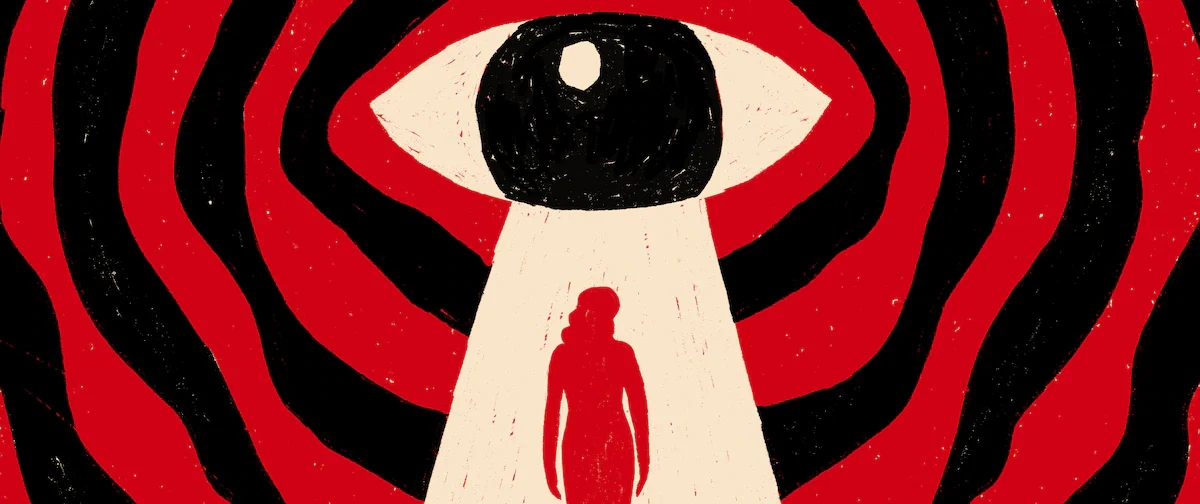“It was a cold bright day in April, and the clocks were striking thirteen”. George Orwell’s 1984 is a timeless work of dystopian fiction that has consistently resonated with readers and remained relevant through its deeply gripping storyline. The novel describes a totalitarian superstate in which an all-powerful dictator ‘Big Brother’ has embedded himself into every aspect of society and brainwashed the populace into unwavering obedience, monitoring their every move and swiftly eliminating those refusing to conform.
Published in 1949 after the end of World War II, Orwell originally intended the novel to be a warning about the consequences of mass surveillance, censorship and propaganda by portraying a society completely devoid of freedom and thought. Orwell was a staunch advocate of democratic socialism. He used the dystopian world of 1984 to critique authoritarian regimes of the time such as the Soviet Union and the recently-defeated Nazi Germany. While 1984’s grim dystopia might seem like a far cry from the freedoms and luxuries that we now enjoy, there may have been an element of truth in Orwell’s words. This is why 1984 is still relevant today.
Geography
1984 is set in Airstrip One (formerly Britain) in a region known as Oceania, one of three superstates that are perpetually at war with one another. The distribution of these states seems to be based on the politics of Orwell’s time, shortly after the beginning of the Cold War. Oceania appears to be an extension of the United States’ alliances and consists of much of the modern West, including the Americas, Britain, Australia and New Zealand.
Conversely, Eurasia seems to represent the Soviet sphere of influence, and includes the entirety of the Soviet Union alongside middle-eastern countries such as Turkey and Iran. Notably, all of the European mainland falls under Eurasia’s territory, which may indicate Orwell’s fears of a potential Soviet invasion of Western Europe after their development of an atomic bomb. Finally, the superstate of Eastasia comprises much of Southeast Asia, China, Korea and Japan. This is likely a reflection of Chinese revolutionary Mao Zedong’s success in the ongoing Chinese civil war at the time.

While Orwell did not intend for 1984 to be relevant for future audiences, the three superstates described in the novel bear striking resemblance to the political alliances we see in the world today. Indeed the Soviet Union did not end up invading Europe, but Orwell still did remarkably well in mapping out the three global superpowers of the 21st century and their respective spheres of influence, given the limited knowledge he had at the time. As British author Dorian Lynskey later wrote, “the post-war order took shape. In April, a dozen western nations formed NATO. In August, Russia successfully detonated its first atomic bomb in the Kazakh Steppe. In October, Mao Zedong established the People’s Republic of China…Oceania, Eurasia, Eastasia.”
War is Peace
The slogan of the totalitarian government in 1984 is as follows: “War is peace. Freedom is slavery. Ignorance is strength.” While this line appears to be inherently contradictory, it may be more relevant than we first thought. Orwell notes that all three superstates in 1984 have the ability to destroy one another, which serves as a deterrent to all-out war. This exact situation is all too familiar – the existence of nuclear weapons has been the single most important factor in preventing a third world war. This is because the use of such destructive weapons in a conflict would result in complete annihilation for both sides, a principle that was largely responsible for preventing full-scale warfare during the Cold War and still today.
Orwell also notes that the three superstates agree to regularly change alliances to prevent two states from working together and defeating the third. This delicate balance of power as a deterrent for war and instigator of peace also exists in our modern world, with the the United States and its allies (Europe, Canada, Australia, Japan, South Korea, etc.) being roughly equal in power to Russia and China’s unofficial alliance such that neither dares to attack the other. The concept of changing alliances to balance power can also be applied today, as we see China taking the place of a declining Russia to become the biggest threat to the West, despite once being a close ally. In a way, Orwell may have been correct in stating that “war is peace”, except ‘war’ is not actual conflict, but the fear of it.
Freedom is Slavery
Meanwhile, “freedom is slavery” is also true, to an extent. Orwell’s time was very much defined by the rise of communism, a far-left political ideology popularised by the Soviet Union that quickly spread throughout the Eastern Bloc. It promised a perfectly free, diverse and classless society in which the people owned the means of production and everyone would contribute and receive according to their abilities and needs. Communism was an extension and the ultimate goal of the socialist movement, and many believed it could create a utopia without private property, money or a state. But as we know, Orwell was no fan of the Soviet Union.

While communism seemed flawless on paper, it failed miserably in practice. It completely stagnated the Soviet economy, resulting in frequent food shortages, poor living standards and abhorrent working conditions. Perhaps Orwell, a vocal critic of Joseph Stalin and the Soviet Union, was commenting on the slave-like conditions created by communism in its pursuit of a free and utopian society, hence “freedom is slavery”. This continues to hold true even in the modern day, with communist nations such as Cuba and North Korea being some of the least liveable, least free places on earth despite claiming to be perfect. Note that modern China, Laos and Vietnam are not actually ‘communist’ in the true sense of the word, and have socialist market economies that are far more comparable to the capitalist system seen in the West. They have experienced immense economic growth as a result.
Ignorance is Strength
Finally, we arrive at “ignorance is strength”. Here, Orwell has again correctly identified an element of totalitarianism that still holds true today – it is much easier to rule as a dictator when your people are ignorant and uneducated. A weak, illiterate and starving population is incapable of staging a revolution against authoritarian rule, and it is therefore in a dictator’s best interests to keep it this way. This is why the eradication of media, knowledge and books is such a recurring and relevant theme in dystopian literature such as 1984, because making the population ignorant and incapable of thinking for themselves only prolongs the dominance of those in power. This also explains why dictatorships today remain most successful and prevalent in African countries, as they typically have poor, hungry and uneducated populations that lack the means and motivation to stage a revolution when their families are starving.
In the modern day, we see that “ignorance is strength” can be applied to propaganda, which often relies on misrepresented information that takes advantage of the ignorance of the population. Propaganda typically invokes strong feelings of nationalism for one’s country and hatred of the enemy, which increases the collective unity of a nation during times of conflict. This was used to great effect by the authoritarian regimes of Orwell’s time, namely the Soviet Union, Nazi Germany and the Japanese Empire to strengthen their rule, as well as by most major countries throughout WWII. Still today, propaganda and disinformation remain tools that are regularly used by extremely centralised governments, most prominently in China, Russia, Saudi Arabia and Iran. Orwell understood that an ignorant population would solidify the strength of those in power, and it was this familiarity with the human condition that led to 1984 remaining so relevant today.
Read more: The Insight Corner



